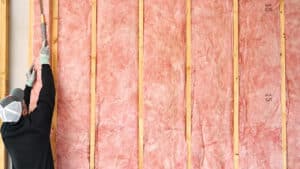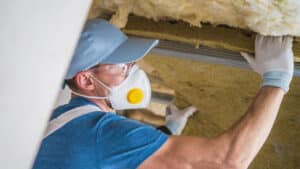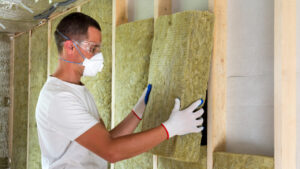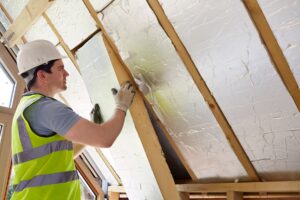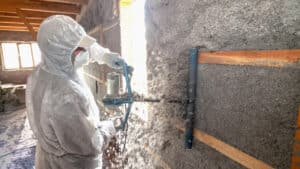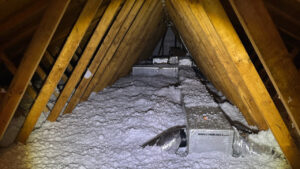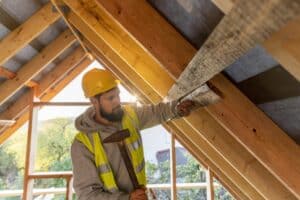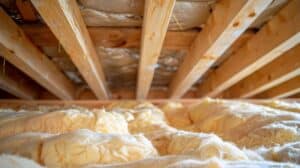In winter it’s important to make sure your home is well-insulated. This isn’t just for comfort but also to save energy and money.
A well-sealed home helps keep the warmth inside and prevents cold drafts. Think of insulation like a blanket that keeps the heat your home makes. But if it’s not checked properly, it might not work well.
Problems with insulation can make your heating bills go up, and your home might not feel as cozy.
Read on to find out how a good insulation inspection and the right insulation installation can change how you feel about your winter energy bill and how well your home works.
Why Winter Home Inspections are Crucial

The winter season can be particularly harsh on homes. Dropping temperatures and even intermittent ice can exacerbate existing problems or create new ones that are not always visible to the untrained eye. And it becomes even more interesting when it’s freezing in the morning and sweltering in the same day. This can cause contracting and expanding of building materials much more quickly than would otherwise be the case.
It’s crucial to identify potential issues with your home early on to prevent them from escalating into larger costly repairs. A professional home inspection service can prove invaluable in this scenario.
Preparing Your Home for a Winter Inspection
Here’s a checklist to help you prepare for a winter home inspection:
– Accessibility: Ensure that the attic, crawl space, or basement (if applicable) are accessible for inspection.
– Lighting: Replace any burned-out light bulbs to provide proper visibility during the inspection.
– Heating System Test: Test your heating system ahead of time to identify any issues and ensure it’s in good working condition.
– Concerns List: Make a list of any concerns or issues you’ve observed or are concerned about happening during colder weather. This will help the inspectors focus on specific areas that may need attention.
The Importance of Proper Home Insulation

Studies show that if a home doesn’t have enough insulation, it can lose up to 30% of its heating or cooling energy through the walls, roof, and windows.
Benefits of having good home insulation include:
– Less Energy Used: Good insulation means you use less energy to heat or cool your home.
– Helps the Environment: Using less energy also means you have a smaller impact on the environment, helping fight climate change.
– More Comfortable Inside: Good insulation makes sure the temperature inside your home stays the same, making it more comfortable.
– Less Noise: It also helps keep outside noise from coming into your home.
– Longer HVAC System Lifespan: Your heating and cooling systems don’t have to work as hard, so they last longer.
How Insulation Works in the Winter

Understanding the importance of insulation involves knowing the science behind how it keeps your indoor space comfortable in winter.
Insulation isn’t just about filling walls and attics with materials; it relies on basic principles of heat transfer and thermodynamics.
Heat Transfer and Thermal Resistance
Insulation works by resisting the movement of heat. Heat naturally moves from warmer areas to colder ones in an attempt to find a balance. In winter, the warmth inside your home tries to escape to the colder outside.
Insulation acts like a barrier that slows down this heat transfer. The effectiveness of insulation in resisting heat flow is measured using R-values. A higher R-value indicates better thermal resistance for the insulation.
Conduction
Conduction is the main way heat moves, and it happens when heat travels through solid materials like the walls or attic of your home.
Insulation materials are made to be bad conductors of heat. For instance, materials like fiberglass and foam trap air in them, forming pockets of still air.
Since air isn’t good at conducting heat, it means less heat can pass through these insulation materials.
Convection
Convection is when heat moves through fluids, such as air or water, because the fluids are in motion. Insulation deals with this by trapping air within its structure, which reduces the transfer of heat through convection.
For instance, in your walls, insulation works to lessen the movement of indoor heated air to the outside and vice versa.
Radiation
Radiation is when heat is transferred through electromagnetic waves, similar to how the sun’s rays heat your skin. Insulation can also deal with this kind of heat transfer.
Many modern insulation materials have reflective surfaces that bounce radiant heat back into your living space, stopping it from getting out through the walls or roof.
Moisture Control
Insulation doesn’t just deal with heat transfer; it’s also important for controlling moisture. When warm indoor air meets a cold surface, it can create condensation and potentially cause water damage.
This condensation might lead to mold, mildew, and damage to your insulation. Good insulation materials and proper installation techniques help manage these moisture-related problems, making sure your insulation stays effective.
The Role of Air Sealing
Insulation can’t work well on its own if there are openings or leaks in your home. This is where air sealing becomes important, as mentioned in the checklist.
Air sealing means sealing off gaps and cracks in your home to stop air from moving in or out without control. If you don’t seal these openings properly, your insulation may not work as well because cold air can get into your living space, canceling out the advantages of insulation.
Location Matters
Various parts of your home need different insulation materials and R-values because heat transfer works differently in each area.
For instance, your attic needs insulation with a higher R-value to counter the movement of heat from the hot roof to the cold outside. Meanwhile, your walls require insulation that stops indoor heat from escaping.
The Costly Effects of Failing to Insulate Your Home

Not insulating an attic can lead to substantial expenses over time due to a considerable waste of energy and air loss.
Here are five costly impacts of neglecting attic insulation:
Loss of Heat
In winter, heat naturally moves from warmer areas to cooler spaces, underscoring the importance of attic insulation. As hot air tends to rise, it gravitates towards the attic. Without adequate insulation, the warmth generated by a home’s heating system easily escapes to colder areas such as attics, garages, mudrooms, and basements. Surprisingly, about 40% of the heat in a home can be lost through the attic.
Insufficient insulation in the attic floor can result in quicker cooling of rooms on upper levels, creating a prolonged and uncomfortable winter. Conversely, a well-insulated attic floor ensures even heating in the upper levels of the house, significantly reducing heat loss through the attic.
Loss of Cool Air
Imagine your air conditioner working extra hard to battle the summer heat and keep your home cool. Unfortunately, without proper insulation, that refreshing cool air escapes, creating a continuous cycle of cooling and energy waste. If you neglect to inspect and seal your home during the winter, this inefficiency persists, leading to increased energy costs when the heat arrives.
While sealing your home against winter’s chill is essential, the benefits extend into the warmer seasons. A well-insulated home ensures that the cool, conditioned air stays inside, enhancing your comfort and optimizing energy use throughout the year. Don’t let your energy bill savings be eroded by the summer sun due to a lapse in seasonal insulation care.
Moisture Accumulation
Neglecting insulation can result in a sneaky yet hazardous issue—moisture buildup in your home. Too much moisture can compromise the thermal resistance of insulation, creating openings for cold air to seep in and heated air to escape, undermining your efforts to save energy.
It’s important to note that continuous dampness in places like the attic or crawl spaces provides an ideal environment for mold and mildew growth. This not only jeopardizes the structural integrity of your home but also impacts indoor air quality. Protect against these issues by conducting regular insulation inspections to keep your home a healthy and energy-efficient sanctuary.
Increased Energy Costs
Without insulation, the heating and cooling systems in a home have to put in extra effort to compensate for lost air during temperature changes. This typically leads to higher energy bills.
As hot and cold air escapes throughout different seasons, the heating and cooling systems must work exceptionally hard to replace it. This becomes more expensive as electricity costs and energy consumption rise in the United States.
Insulated attic floors play a crucial role in maintaining consistent temperatures within a home throughout the year and play a key part in reducing energy expenses.
Decreased Property Value
In today’s real estate market, potential home buyers are particularly attentive to the energy efficiency of the houses they consider. While newer constructions must adhere to specific standards, older homes may not meet local energy codes, especially if they lack proper insulation in the attic.
Homes without sufficient insulation might see a notable decrease in property value when put up for sale. If you’re contemplating selling your property, it’s worth comparing the expenses of installing insulation against the potential loss in property value if you forego this home improvement project. You might recognize the significant value of installing insulation when it comes to selling your home.
Contact Universal Insulation Doctor for Trusted and High-Quality Service

For personalized guidance and excellent service, contact Universal Insulation Doctor.
Leveraging our extensive experience and dedication to excellence, we guarantee a thorough assessment and improvement of your insulation to cut energy costs and enhance comfort.
Rely on the expertise of Universal Insulation Doctor to make your energy efficiency journey a success. Our team of professionals is prepared to meet your winter insulation needs, and provide dependable solutions for a cozy and cost-effective home, regardless of the weather outside. Contact us today for personalized assistance.
Frequently Ask Questions
How often should I get a winter insulation inspection?
It is highly recommended that the homeowner schedules a professional winter insulation inspection at least once a year, ideally before the onset of colder seasons, to proactively identify and promptly address any potential issues that may compromise your home's insulation efficiency and increase energy consumption.
Can I perform a winter insulation inspection on my own?
While some basic visual inspections can be done by homeowners, a thorough winter insulation inspection is best left to professionals. These experts possess the necessary expertise and specialized tools to uncover hidden insulation issues that may not be apparent during a DIY assessment.
Is winter insulation only important for cold climates?
No, winter insulation is crucial in all climates. Even in regions with milder winters like Hampton Roads or Virginia Beach, proper insulation plays a vital role in maintaining a comfortable indoor temperature. Additionally, it contributes to energy savings by preventing unnecessary heat loss or gain, making it a valuable investment regardless of climate.
Will improving insulation affect the resale value of my home?
Certainly, enhancing insulation in your home can positively impact its resale value. Prospective buyers often prioritize energy efficiency, and a well-insulated home is not only attractive but also signifies lower utility costs, making it a desirable feature in the real estate market.
How long does insulation typically last before needing replacement?
The lifespan of insulation varies based on factors such as the type of material used and environmental conditions. In general, high-quality insulation can last for several decades before requiring replacement or upgrades. Regular maintenance and periodic professional inspections can help ensure optimal performance and longevity.

